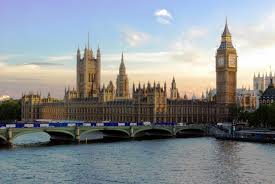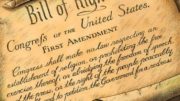The chaos that has engulfed Parliament since the Referendum vote to leave the European Union in 2016, is getting much worse. Last night the Government led by Prime Minister Boris Johnson backed down in the face of Remainers in the House of Commons who are pushing through a bill to forbid a ‘no deal’ exit from the EU. It had been hoped by many of us that the bill, if it was passed by the Remain dominated House of Commons, could have been blocked by the Upper House, the House of Lords. However, the Government has agreed that the Lords will not block this legislation and that it will go through the normal processes in the Lords before returning to the Commons for another vote.
This looks to me like a massive climbdown by the Government and it is to be hoped that this is a strategic retreat rather than a complete capitulation to the Remainers, many of whom promised faithfully that they would honour the result of the Referendum but did not. It may well be that Mr Johnson and other Brexiteers in Government may have some ace up their sleeve with which to deal with the frankly treasonous Remainers, but I can’t really tell what that ace could be? Boris Johnson has in my view done really well since becoming Prime Minister, he’s removed from the Cabinet many of those who were acting as an EU fifth column within Government and has exposed the anti-democratic nature of the Remainers. He’s also sacrificed his own party’s majority in the Commons by removing the whip from the Tory Remainers who voted against the Government recently.
Mr Johnson and his government are stuck between a rock and a hard place. I suspect that Mr Johnson and his team are very aware of the growing disgust in the country as a whole at the shenanigans in Westminster and especially the way that the Remainers have consistently tossed aside democracy. He could or rather should call a General Election but he cannot as his hands are tied by the Fixed Term Parliaments Act of 2011. In order to call an early election and, as Boris Johnson may hope, seeing these shameless Remain traitors kicked out by the electorate, there now needs to be a two thirds majority in the Commons for an early election. Neither Labour nor the other Remain supporting parties such as the Lib Dems are that keen on this. They may well be worried that an election may not go in the Opposition’s favour, partly because the behaviour of the Parliamentary Remainers has disgusted the public. Therefore the Opposition parties are blocking the Prime Minister’s call for a General Election that the Opposition may suspect that, based on current polling data that puts the Tories on 35%, they would lose.
Britain’s politics and political system, which has worked reasonably well, although with a few hiccups, since the Great Reform Act of 1832, is now a complete and utter mess. We have a House of Commons which is filled to the brim with representatives that only represent themselves and not those who voted for them and members whose allegiance is more towards the EU than the Crown or the People. We are now governed by a House of Commons that is pushing policies that are the exact opposite of that which we voted for in 2016. We voted to leave the EU and to have a clean break from this bloc. Unfortunately as time has gone on more and more Parliamentarians have shown themselves to be contemptuous of the decision made by the public and delegated to that public by Parliament itself. We are now in the disgusting and worrying period where we have a Parliament versus the People situation and that is something that is really not wanted.
I’ve been racking my brains and checking the history books and I can’t recall or find anything similar to what is happening now. The nearest thing I can find where the government and Parliament is deadlocked in this way is from the early 20th century. This was when the House of Lords blocked a Liberal Party budget leading to the 1911 Parliament Act that removed many powers from the Upper House. My own fear is that this current crisis is far worse that that of 1908 and is more akin to the furore and disruption caused by the Great Reform Act of 1832. Then there really was a distinct fight between Parliament and people with Parliament refusing to countenance the removal of corrupt ‘Rotten Boroughs’ or to extend the voting franchise to encompass the upper working class and the increasingly vocal and important middle class. This was a terrible time in Britain’s political history with rioters calling for Parliamentary reform in towns and cities across the country. During that civil conflagration, Bristol saw the worst of the riots and the response from the state to this disturbance was particularly brutal. I’ve no wish to see such open kinetic warfare between Parliament and People, everyone will lose if that occurs. I think the best way to lance this massive boil on the face of British politics caused by the Remainers is to have a General Election but whether this will occur before the Remainers pass various Brexit wrecking bills is a question I cannot properly answer so fluid is the situation at the moment.






Was there really ‘a distinct fight between Parliament and people’ in 19C? Does ‘people’ include the special constables and soldiers? The law-abiding majority taking no part in the various disorders?
U.S. Senator Roscoe Conkling famously remarked that when Dr Johnson spoke of ‘patriotism’ as the last refuge of the scoundrel he overlooked the vast possibilities latent in the word ‘reform’, but both overlooked the even vaster possibilities latent in the phrase ‘The People’ in whose name so much is demanded.
Support for Reform/Chartism reached its apex with the 1842 Chartist petition and its 3.3 million signatures—about a third of the adult population of the British mainland; it then went into decline. A third petition in 1848 claimed 6 million signatures but these were soon revealed to be largely fraudulent, a more accurate number being 1,975,496 (a later check claimed 2,018,000)—not even 19% of British adults. A final petition in 1851 gathered a mere 11,834 signatures. The extreme fraudulence of the 1848 petition obliges one to question the validity of the 1842 figure—it is notable that when promoting the 1839 petition, Chartist leaders Feargus O’Connor and Henry Hunt were both recorded appealing for children to sign. Even accepting the 1842 figure means two-thirds of British adults were indifferent to actively hostile to the Chartists; and six years later that figure was up to four-fifths.
The real question is why Parliament, having defeated the Chartists, then incrementally implemented all but one of their Six Points. Were one to write a book, it could be titled The Rise, Fall, then Strange Success of Chartism.
Ignoring the ‘physical force’ Chartists agitating for revolution, what did ordinary Chartist supporters really want? William Preston Slosson in his The Decline of the Chartist Movement (Columbia University, 1916) correlates the rise and fall of Chartism with economic conditions, Chartism declining as prosperity increased. This indicates that many supported Chartism not as an end in itself but a means to an end, that end being only a decent life—the ‘fair day’s wages for a fair day’s work’. Once they found they could obtain that without overturning the British way of life, support for Chartism fell away.
The Bristol rioters of 1831 freed convicts, burned down about a hundred buildings including an Anglican bishop’s residence (with an unknown number believed to have died in the fires), and looted everything they could carry away. The authorities merit criticism at their initial hesitancy in the face of such death and mayhem, rather than for being ‘particularly brutal’.
According to the Bristol Museum website, ‘The Bristol Riots were a reaction to the statement in Parliament of Bristol’s Recorder (senior judge) Sir Charles Wetherell, that the people of Bristol were not in favour of reform. Actually, Bristol had gathered a petition of 17,000 signatures supporting the Reform Bill.’ 17,000 out of an adult population of 104,000 suggests 87,000 were anything from indifferent to hostile to the Reformists, heavily implying Wetherell’s declaration was essentially right. And a 10,000-strong petition begging mercy for the four men sentenced to hang in the riots’ wake implies 94,000 Bristolians were indifferent to supportive of those sentences.
You note the ‘increasingly vocal and important middle class’. The Left once believed that national divisions between the working classes were artificial, but that idea largely died in 1914; they hung on for longer to the notion of an artificial division between workers and soldiers, saying that ‘A bayonet is a weapon with a worker at both ends.’ The true artificial divide is between the peasantry and nobility; the upper and lower classes have more in common with each other than either has with the middle class.
In David Goodhart’s terms (The Road to Somewhere: The Populist Revolt and the Future of Politics, 2017), society is divided into ‘Somewheres’ and ‘Anywheres’: the ‘Somewheres’, attached to their community, ancestors, tradition and nation; in contrast to the ‘Anywheres’ with no such attachments. The peasantry and nobility tend to be the ‘Somewheres’. The nobility obviously—the 17th Duke of Wherevershire looks back at every previous Duke all the way to the 1st and has a vested interest in ensuring he has a happy shire to bequeath to his son, the future 18th Duke; while the peasantry have little choice to be other than ‘Somewheres’, their families and neighbours being all they have. The ‘Anywheres’ are largely the middle classes—better skills and more funds affords them greater freedom to relocate, thus attachments to roots and community are minimal; they think nothing of moving themselves and/or their business to the other side of the world, and likewise think nothing of moving people from the other side of the world to here. The Anywheres might be ‘Progressive Liberals’ promoting immigration as immigrants do the jobs natives won’t—vote Democrat/Labour/SNP/Plaid Cymru/Sinn Féin; or they might be ‘Classical Liberals’ promoting immigration as immigrants increase the supply of labour so depressing wages. ‘Progressive’ or ‘Classical’, they’re Liberals screwing the working class between them.
It’s the middle classes that are the problem. Society across Christendom was formerly divided into the ‘estates of the realm’: Altar, Throne and Cottage (clergy, nobility and peasantry)—‘The priest blesses Society, the knight defends it, the peasant feeds it.’ But the middle classes warred against that social order from their emergence—every revolution is but a revolt of the middle classes. E.g. the Cromwellian Revolution—the Parliamentary bourgeoisie usurped power but when some of the peasantry (levellers and diggers—his own soldiers) demanded their share, Cromwell did not hesitate to ruthlessly suppress them. Socialist agitation in general is middle class to the core: Karl Marx, a middle class dilettante; Engels, a middle class son of a factory-owner; Lenin, a middle class failed law student; ‘Che’ Guevara, a middle class failed medical student; etc. And the modern Labour and Conservative parties are bad precisely because they left their respective working and upper class roots to become entirely middle class.
To fight an enemy, one must first identify them correctly. And the battle is not between Parliament and ‘People’ as ‘People’ is a meaningless propaganda term. The battle is the centuries-long one (noted before) between the middle class and everyone else.
(Btw, wrt ‘rotten boroughs’—Edmund Burke got his political start courtesy of one (Wendover, 1765–74). If a ‘rotten borough’ could give a start to someone regarded as one of our greatest parliamentarians, they should not be thoughtlessly dismissed.)